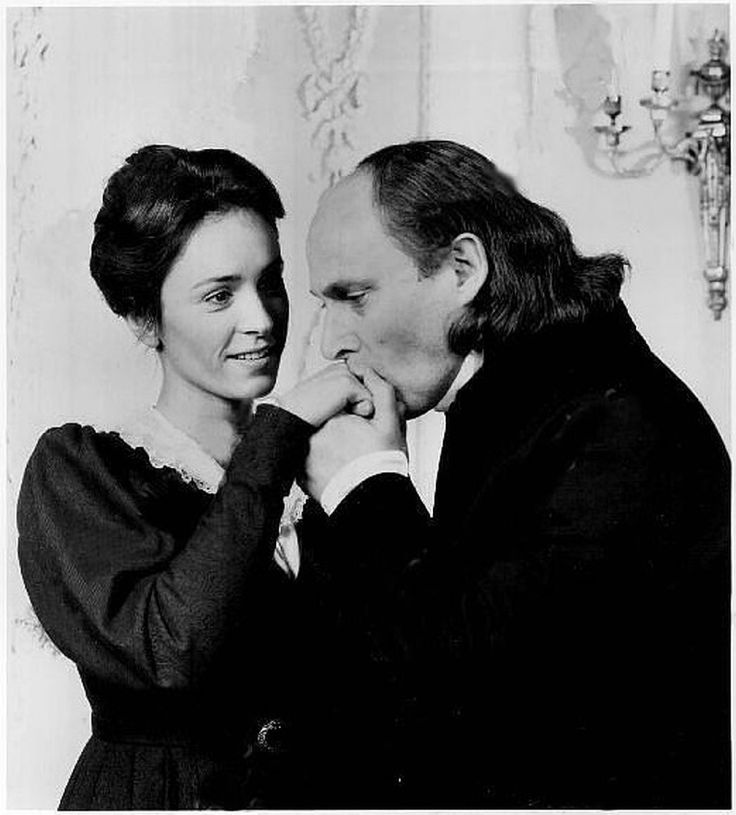
No. 8. Dorothea and Edward Casaubon from Middlemarch (George Eliot)
Spoiler alert!
Another of Eliot’s brilliant portraits of a hopeless pairing. Dorothea (“Dodo”) is a sheltered and intense young woman with a background in English and Swiss Puritanism:
Riding was an indulgence which she allowed herself in spite of conscious qualms; she felt she enjoyed it in a pagan sensuous way, and always looked forward to renouncing it.
She is a selfless woman who desperately wants her life to be purposeful, in a society where opportunities for a gentrified woman were limited. Dorothea’s circle of acquaintances is small, but she finds herself drawn to the cleric and scholar Edward Casaubon. She accepts his marriage proposal in the hope that it will provide her life with a worthwhile focus and allow her to help a great man of letters in his important work.
Dorothea was more captivated by the vast library learning of Casaubon, and she exclaimed “what a lake compared with my little pool”
Casaubon is much older than Dorothea and his studies are not going well, he is out of touch with the latest scholarship and is mentally and physically shot. He has been living a certain way for so long he’s incapable of adapting to life with a young wife. Sir James describes Casaubon as:
“no better than a mummy”
and:
“He has got no good red blood in his body” said Sir James. “No. Somebody put a drop under a magnifying-glass and it was all semicolons and parentheses,” said Mrs. Cadwallader.”
Though not a bad man Casaubon is a dust dry humourless pedant who denies Dorothea joy and intimacy. Dorothea seeks to be of help to Casaubon in his work, the major focus of his life, but is barely accepted in this role.
How was it that in the weeks since her marriage, Dorothea had not distinctly observed but felt with a stifling depression, that the large vistas and wide fresh air which she had dreamed of finding in her husband’s mind were replaced by anterooms and winding passages which seemed to lead nowhither?…. Having once embarked on your marital voyage, it is impossible not to be aware that you make no way and that the sea is not within sight — that, in fact, you are exploring an enclosed basin.
Gradually she becomes aware that her husband’s grand treatise and life’s work The Key to all Mythologies is going nowhere and her feelings turn to pity and a desire to comfort him in his disappointment and ill health. Casaubon’s jealousy of his cousin Ladislaw leads to him changing his will and thereby ensure that the cleric is able to influence the happiness of his wife beyond the grave.
The doomed relationship between and Dorethea and Casaubon is a classic in English literature. Why isn’t it higher on this list? Casaubon is not a cruel or heartless man and tries to be a caring husband, he just doesn’t know how. Although the marriage was a disaster it didn’t last long. There are only 3 years between Dorethea’s first meeting Casuabon (1829) and her second marriage to the young Will Ladislaw (1832). So when her first marriage ends, the noble Dodo is an older and wiser person and apparently settled for life with her soul mate.
The Long Victorian
Worst couples in literature – The complete list
No. 11. Charlotte Lucas and Mr. Collins from Pride and Prejudice (Jane Austen)
No. 10. Rosamund Vincy and Dr Lydgate from Middlemarch (George Eliot)
No. 9. Lydia and George Wickham from Pride and Prejudice (Jane Austen)
No. 8. Dorothea and Edward Casaubon from Middlemarch (George Eliot)
No. 7. Arabella Donn and Jude Fawley from Jude the Obscure (Thomas Hardy)
No. 6. Anna Karenina and Alexei Vronsky from Anna Karenina (Leo Tolstoy)
No. 5. Bertha and Edward Rochester from Jane Eyre (Charlotte Brontë)
No. 4. Madeline Bray and Arthur Gride from Nicholas Nickleby (Charles Dickens)
No.3. Laura Fairlie and Sir Percival Glyde from The Woman in White (Wilkie Collins)
No.2. Angel & Tess and Alec & Tess from Tess of the d’Urbervilles (Thomas Hardy)
No.1 Heathcliff and Catherine from Wuthering Heights (Emily Bronte)